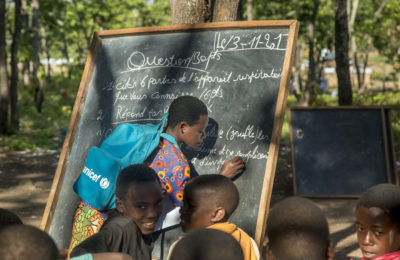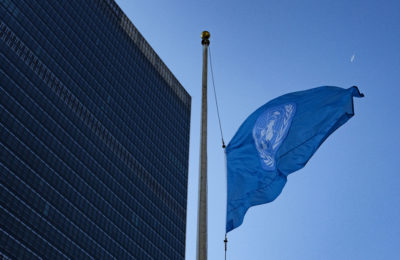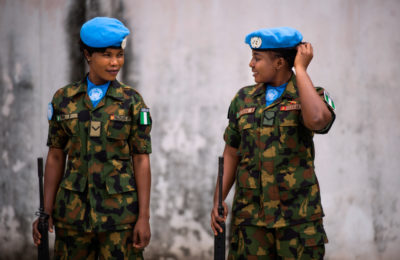The United Nations and its component parts can be a complicated place. The acronyms we use can be complicated, too. To help you navigate our acronym-heavy world, we made this cheat sheet. Some of these you might already recognize, and some might be new, but they’re all apart of what we call the “UN Family.”
UN – United Nations. Headquartered in New York City, the UN is most recognizable as the world’s ‘911 service’ – a first-responder that helps deliver food, shelter, to those caught in the middle of deadly conflicts or suffering in the aftermath of natural disasters. That means doing important things like working to prevent famine in Yemen and providing assistance to refugees fleeing violence in South Sudan.
UNGA – United Nations General Assembly. Pronounced like ‘uhhhnga.’ UNGA is the UN’s main decision-making body – where a single representative (most commonly referred to as an Ambassador or Permanent Representative) of all 193 Member States comes to work with other countries. It’s also an event that occurs every September where global leaders all gather at UN headquarters in New York to hammer out priorities for the year ahead. It’s basically the World Cup of global diplomacy. Go Team USA!
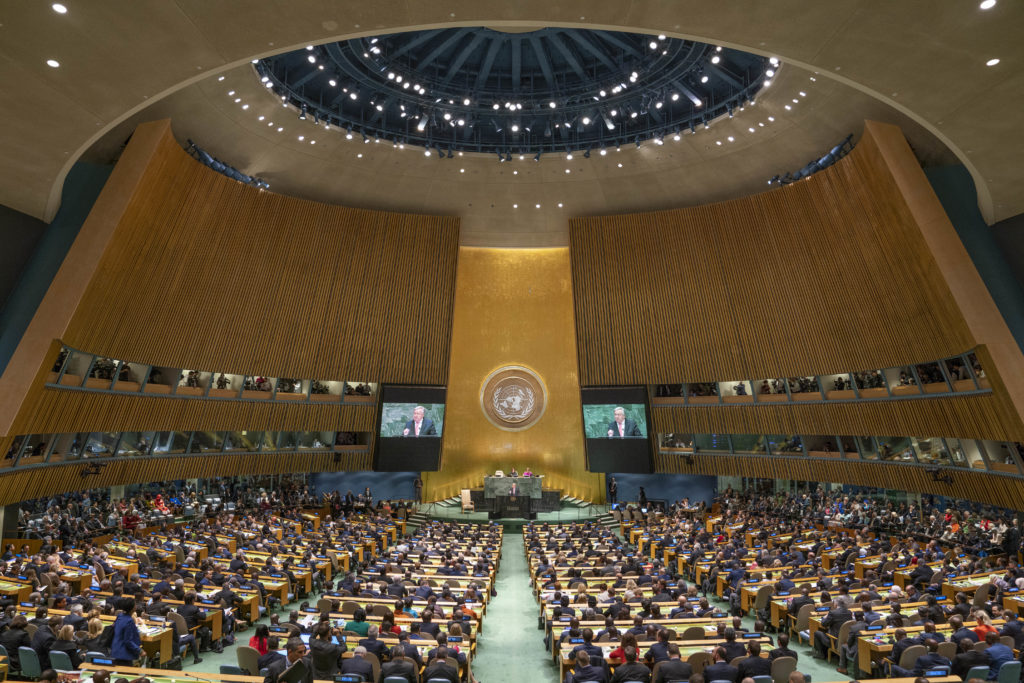
UNSC – United Nations Security Council. The part of the UN system that is responsible for maintaining international peace and security, such as passing sanctions against rogue states (North Korea and Iran) and authorizing peacekeeping missions (Central African Republic, Mali) when major conflicts arise. The U.S. is a permanent member (along with China, Russia, the U.K. and France) with veto power, which means that it holds a lot of influence on the Council.
UNDP – United Nations Development Programme. UNDP is the UN’s “global development network,” which means it is tasked with tackling issues such as democratic governance and reducing poverty. In Iraq, that means helping put the country back together – restoring critical infrastructure such as water systems, electricity, and schools – after years of war.
UNODC – United Nations Office on Drugs and Crime. This UN entity is on the front lines of working on some of the world’s toughest issues that are important to the U.S., too, like stopping human trafficking, addressing terrorism, and fighting the global opioid crisis.
UNICEF – The United Nations Children’s Fund. UNICEF is the agency that looks out for mothers and children worldwide, providing basic elementary education and procuring vaccines for 45 percent of the world’s children.
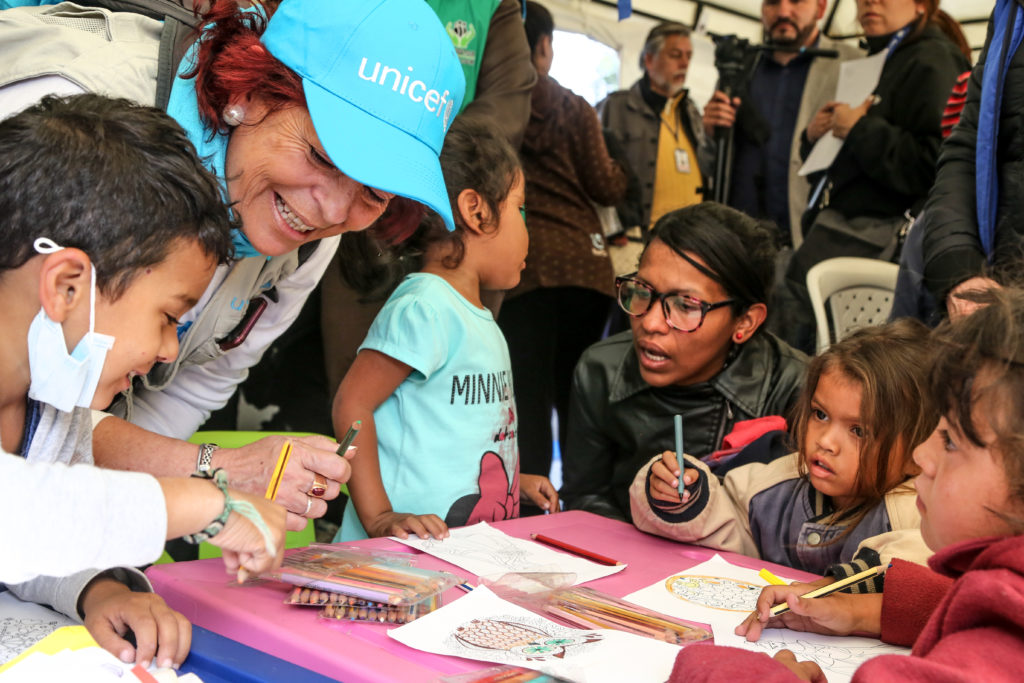
WFP – World Food Programme. WFP goes the places no one else wants or can’t go, using planes, boats and trucks to deliver food aid to over 90 million people every year. When wars and natural disasters happen, like the ongoing crisis in Syria, WFP works to avert famine and malnutrition.
WHO – World Health Organization. The UN agency that makes sure all people have a shot at getting a clean bill of health. They also help to coordinate the international response to global health emergencies, like Ebola, Measles, and Zika, because diseases don’t know borders.
SG – Secretary-General. As the world’s top diplomat, the SG is responsible for running the entire UN system. Since January 2017, the SG position has been held by António Guterres of Portugal. This role is often called the “most impossible job on earth.” NBD.
SDGs – Sustainable Development Goals aka the Global Goals. Imagine the SDGs as the world’s giant to-do list, designed to end poverty, fight inequality and stop climate change by 2030.
UDHR – The Universal Declaration of Human Rights. The document’s creation was led by former First Lady and Chair of the Human Rights Commission, Eleanor Roosevelt, and set out for the first time that all human rights must be universally protected.
UNHCR – The UN High Commissioner for Refugees aka the UN Refugee Agency. During times of displacement both big and small (see Venezuela, South Sudan, Afghanistan) UNHCR is on the ground to provide critical emergency assistance like food, shelter, blankets and more.
UNFPA – United Nations Population Fund. The agency that covers reproductive health issues and works to make sure all pregnancies are wanted, and all childbirth is safe. In Malawi, their work includes fighting to reduce the prevalence of forced marriage.
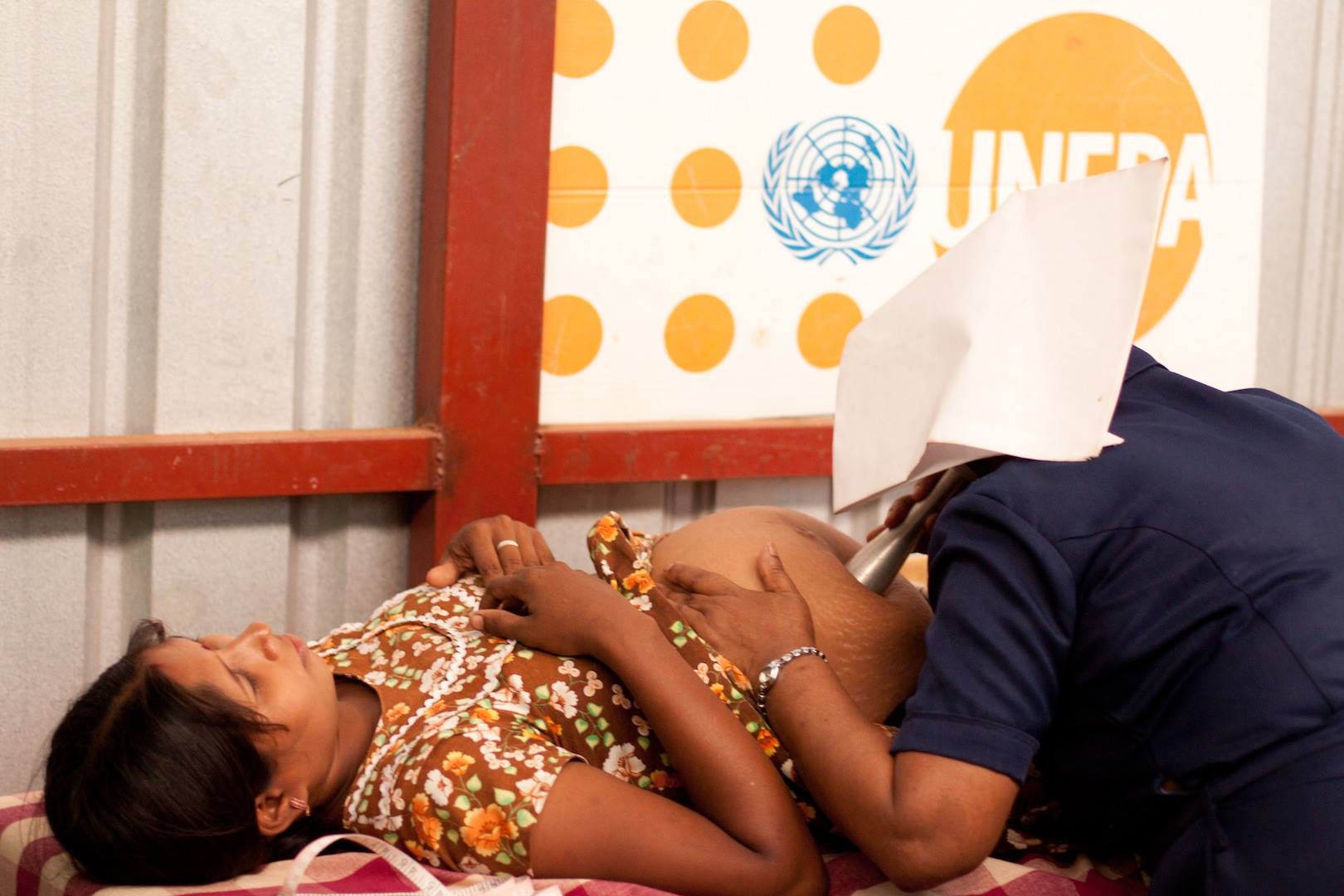
ILO – International Labor Organization. You can thank ILO for the 40-hour work week, and setting other international labor standards as your guardian in the workplace, championing rights like social security benefits and establishing safeguards against gender discrimination.
IOM – International Organization for Migration. IOM is the UN entity that looks out for the rights of migrants. When thousands of migrant workers became stranded in Libya during the uprising there in 2011, IOM worked to evacuate them.
UNEP – UN Environment Programme. Imagine UNEP as the world’s bodyguard, protecting the planet at all costs. UNEP sets the global environmental agenda and advocates for sustainability across the planet, like challenging the world to breaking up with single-use plastic.
IAEA – International Atomic Energy Agency. IAEA deals with some pretty major issues – like monitoring Iran’s compliance with the nuclear agreement – that are key to U.S. national security and foreign policy objectives. But the agency also works on the peaceful use of the atom, such as using nuclear technology in cancer research and preventing ocean acidification.
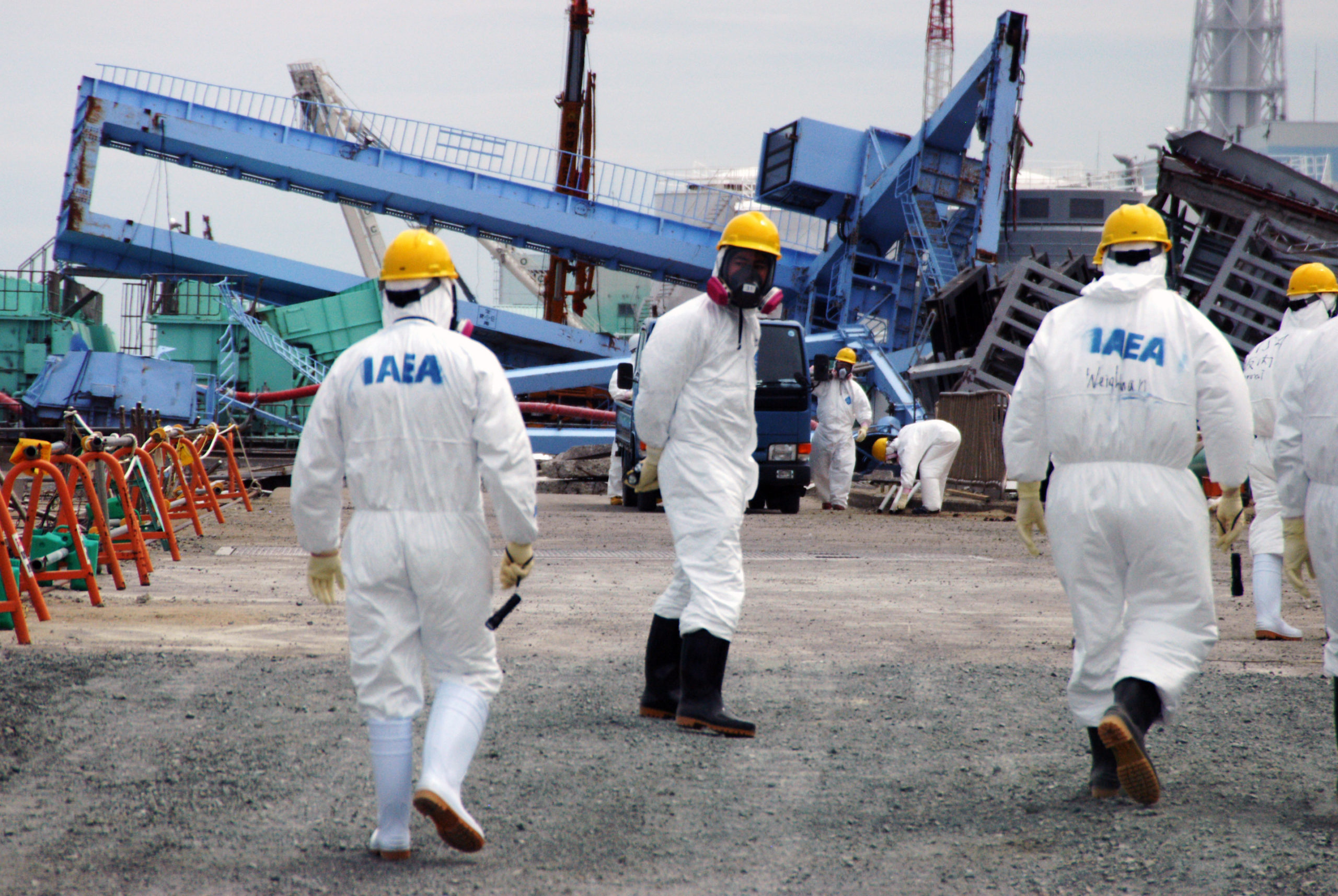
FAO – Food and Agricultural Organization of the United Nations. This organization leads international efforts to defeat hunger and develop global standards on food safety and animal health. FAO also implements strategies to prevent, identify, and mitigate threats of animal borne diseases highly pathogenic avian influenza when they occur.
OHCHR – Office of the High Commissioner for Human Rights. This UN entity conducts fact-finding missions and provides support to independent investigative mechanisms that probe serious violations in specific countries. In recent years, OHCHR has aided efforts to uncover and report on abuses in Syria, Iran, North Korea, Sri Lanka, the Central African Republic, Iraq, Belarus, Myanmar, Eritrea, and Ukraine, among other places.
ICAO – International Civil Aviation Organization. Chances are you have been on a commercial plan in the past year. Did you know ICAO helped you make that journey safely? This organization sets global standards for navigation, communication and airline safety. Plus, ICAO helps to counter major global issues like human trafficking via air travel and environmental degradation as a result of fuel usage.
WIPO – World Intellectual Property Organization. Just like its name suggests, WIPO oversees the global protection of patents, copyrights and other forms of intellectual property. When you have a business idea or invention, WIPO is your first-stop to determining whether someone already holds claim to it.
UPU – Universal Postal Union. Since mail doesn’t just magically fly overseas on its own – businesses and consumers alike have UPU to thank for facilitating postal services and setting postal standards across the globe.
UNESCO – UN Educational, Scientific, and Cultural Organization. It’s possible you have seen a ‘UNESCO World Heritage’ site sign at the Grand Canyon or the Alamo. But this organization does much more than just protecting our cultural heritage, they also engage in activities that serve our national security and foreign policy objectives. In Iraq and Syria, UNESCO has been on the front lines of stopping ISIS’ sale of antiquities, which help fund their illicit activities.
BWC – Better World Campaign. Yes, that’s us! In case you didn’t know, we work to foster a strong, effective relationship between the United States and the United Nations. That means we work with Members of Congress, the media and the general public to promote core American interests and build a more secure, prosperous, and healthy world.
